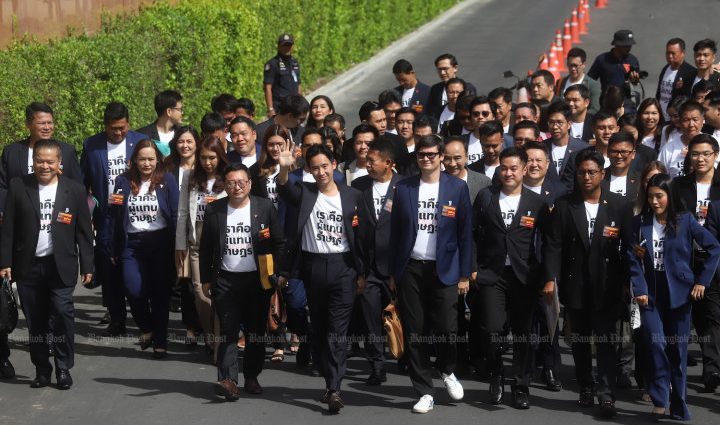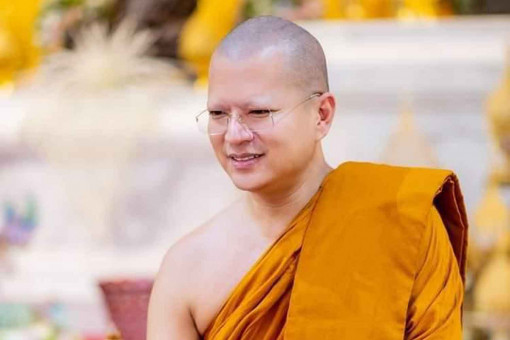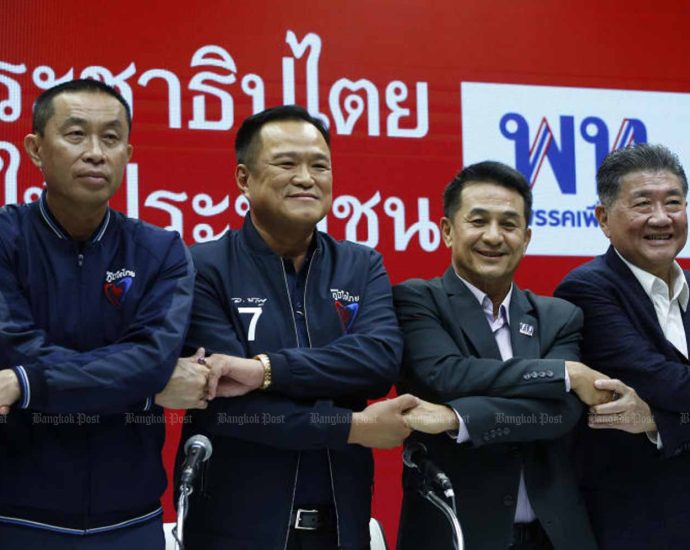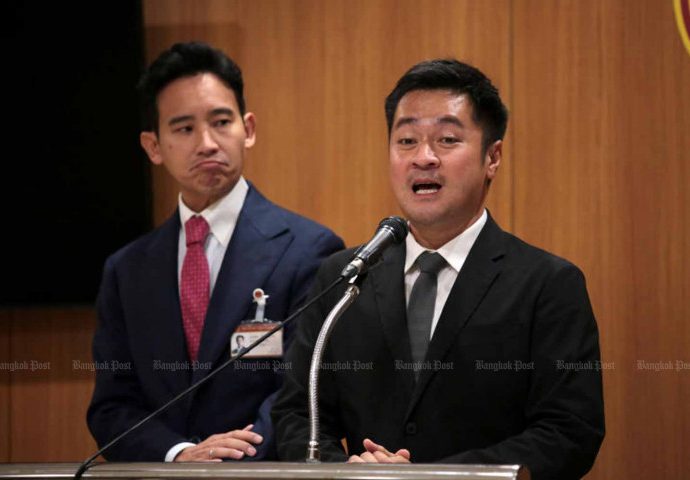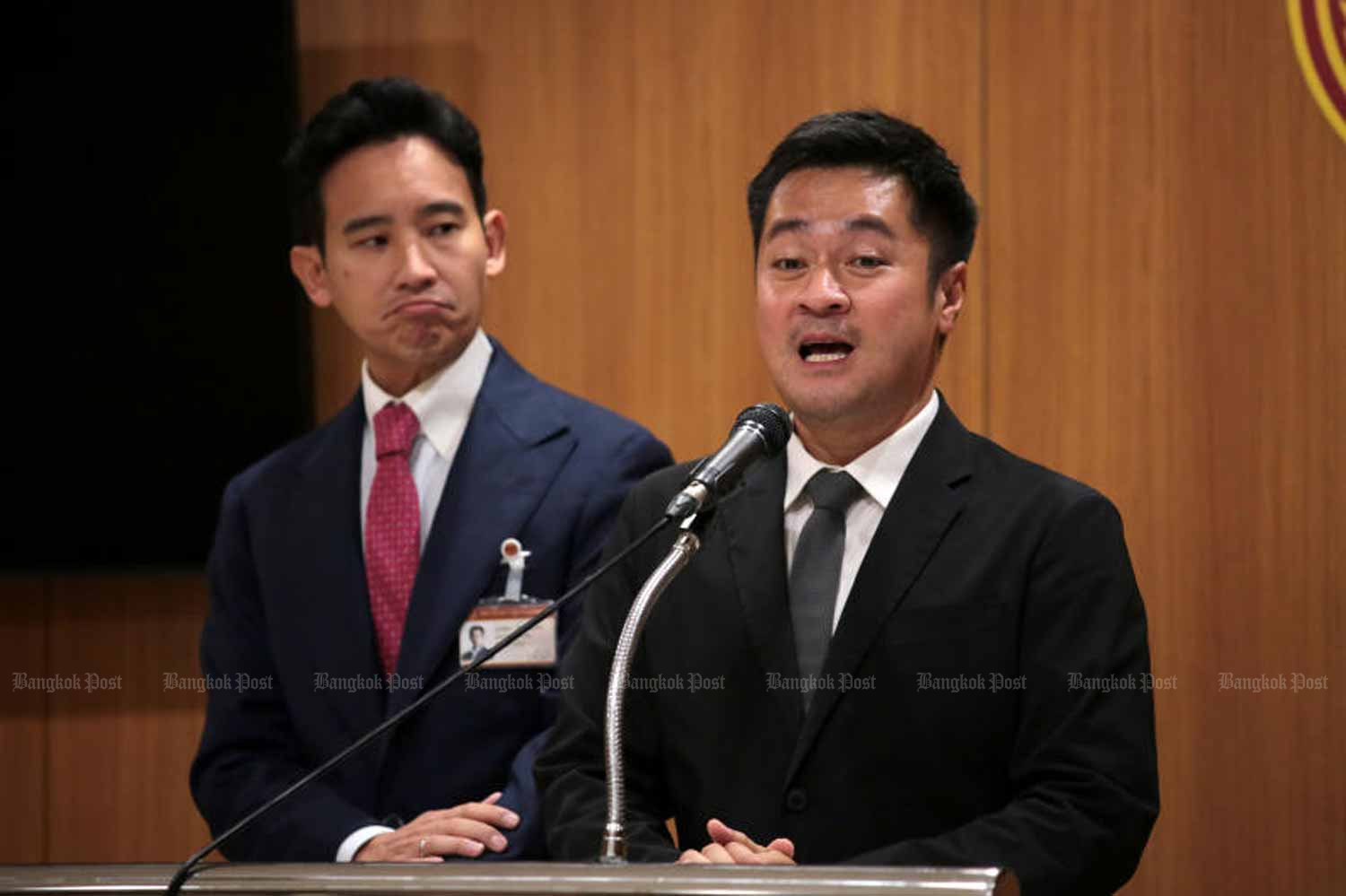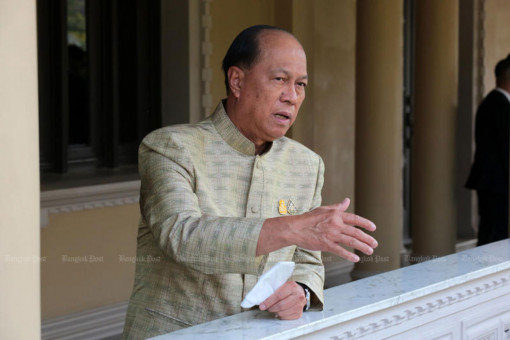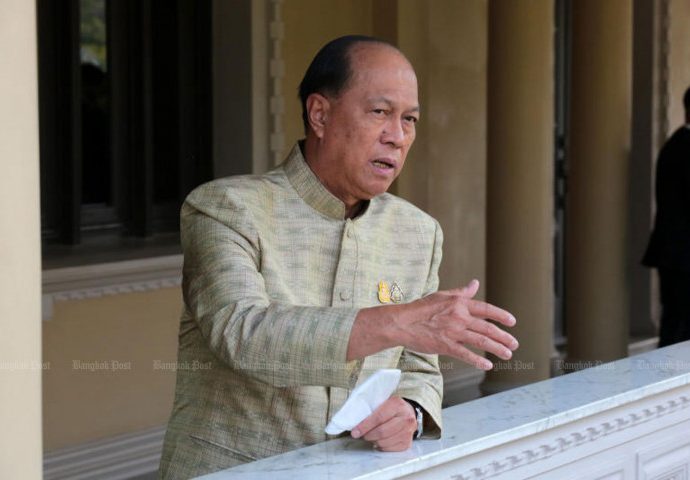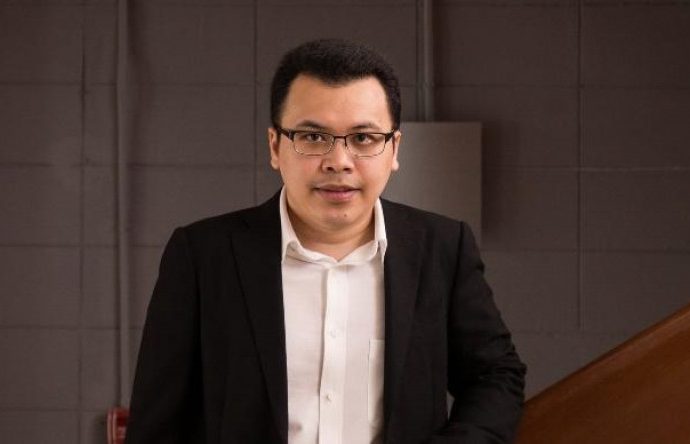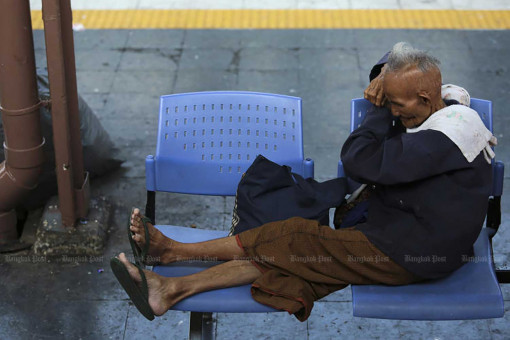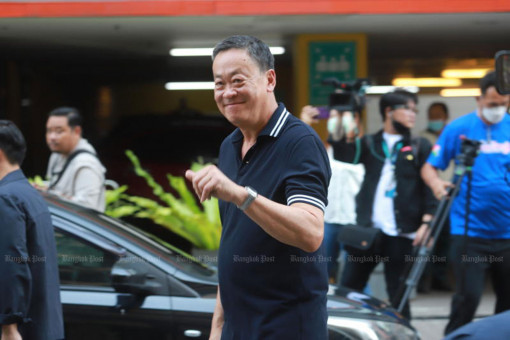MFP wonât vote for Pheu Thai PM candidate
New coalition is ‘not reflective of people’s voice’, says election-winning party

The election-winning Move Forward Party (MFP) will not back the Pheu Thai Party candidate for prime minister, Move Forward secretary-general Chaithawat Tulathon said on Tuesday.
The decision could complicate efforts by Pheu Thai to obtain the required support to form a government, and prolong weeks of political deadlock.
Despite abandoning Move Forward earlier this month, second-placed Pheu Thai has been seeking its former ally’s backing for real estate tycoon Srettha Thavisin to become premier.
Move Forward lawmakers were unanimous in opposing that, Mr Chaithawat told a news conference on Tuesday.
“The formation of the government now is not reflective of the people’s voice,” he said.
“It is clear that senators and other parties want to shut Move Forward down.”
MFP leader Pita Limjaroenrat failed to secure a majority in a vote for prime minister at a joint sitting of the House and Senate on July 13. Parliament subsequently voted on July 19 not to allow Mr Pita to be nominated a second time.
The latter decision has been challenged in the Constitutional Court, which is scheduled to announce on Wednesday whether it will take up the case.
If the court declines to take the case, the next vote for prime minister is expected to take place on Friday or next Tuesday, Aug 22.
Move Forward gave up its effort to form a coalition after Mr Pita’s renomination was rejected, making way for Pheu Thai, which is creating a new alliance.
The new coalition includes the third-placed Bhumjaithai Party, which was a key player in the outgoing government. Multiple reports have said that Pheu Thai is also seeking the support of the two “uncle” parties that Move Forward has shunned as a matter of principle.
The “uncle” parties are Palang Pracharath (PPRP) led by Gen Prawit Wongsuwon, and United Thai Nation (UTN), the party created as a vehicle for Prime Minister Prayut Chan-o-cha, who led the 2014 coup and is now stepping away from politics.
Despite insisting that Pheu Thai had yet to reach any formal agreement with the PPRP and the UTN, deputy Pheu Thai leader Phumtham Wechayachai has admitted that the party was left with no other choice but to include them for the sake of stability.
The UTN is unpalatable not only to Move Forward but also to many Pheu Thai supporters, as its membership includes key figures from the Bangkok Shutdown protests that led to the coup that toppled the Pheu Thai administration of Yingluck Shinawatra in 2014.
Move Forward said in a statement posted on X (formerly Twitter) that “almost all traditional ruling parties” were being brought together to form the government. “This is contrary to the will of the people, clearly expressed on the day of the election on May 14”, when Move Forward won 151 seats and Pheu Thai 141.
“Although at this time there is still no clarity on the composition of the cabinet, it is clear that the appearance of the cabinet will not be much different from the previous government,” the statement continued.
“The Move Forward Party does not believe in forming a government out of respect for those in power but not for the people.”
Commentary: The continuing crisis of Thai Democracy

